Media Coverage

Money Geek
Simply put, stagflation is made up of high inflation and a slowing economy. However, conventional methods by central bankers to address either one tend to exacerbate the other. How have central bankers been dealing with stagflation in recent years?
Central bankers are trying to deal with inflation by raising interest rates, which makes many items more expensive, thereby reducing demand. They are also shrinking the money supply, which also tends to increase interest rates. However, central banks can't fix the supply chain problems or the war in Ukraine, which is another factor increasing the prices of some commodities.
Central bankers are trying to deal with inflation by raising interest rates, which makes many items more expensive, thereby reducing demand. They are also shrinking the money supply, which also tends to increase interest rates. However, central banks can't fix the supply chain problems or the war in Ukraine, which is another factor increasing the prices of some commodities.

AP
“Certain toys, for example consoles and certain games more than likely, they’ll sell out quickly,” says G. Tony Bell, an assistant professor in the department of supply chain management at Rutgers Business School. “So I would say, definitely buy early. The price advantage in buying later than buying earlier is going to be minimal at best.”
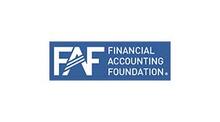
Financial Accounting Foundation
The Board of Trustees of the Financial Accounting Foundation (FAF) today announced the appointment of Joyce Joseph to the Financial Accounting Standards Board (FASB). Ms. Joseph currently serves as managing director for Capital Accounting Advisory and Research, LLC and as an assistant professor of professional practice at Rutgers University. Her term is effective July 1, 2023 and runs until June 30, 2028. She will then be eligible for consideration for reappointment to one additional five-year term.
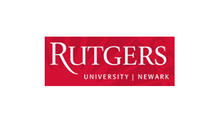
Rutgers-Newark News
“For boy’s toys especially, there’s lot of Black animation, gaming that’s being developed, drawn from comic books and sci-fi. It’s characters looking like you and being futuristic and magical and mystical, it’s part of the genre right now. And I’m seeing a mass of it, not just a one-off,’’ said Eason, creator of Sun-Man, the first Black superhero action figure, and a professor of business at Rutgers University–Newark.

The National Desk
“President Biden should stress that moderates on both sides won, and he can't wait to reach out across the aisle,” said Farrokh Langdana, professor of finance and economics at Rutgers Business School. “He should not demonize the Republicans, he should dangle tax cut talk for them, and they will be trapped. They really have to rise to the challenge because someone dangles tax cuts and they don't rise to that; they will then look bad because that's their big mantra — tax cuts — and they will actually help. This is not just a political thing.”

Daily Journal
"A lot of this inflation evolution is beyond the control of the White House," said Parul Jain, an associate professor of finance and economics at Rutgers Business School. But the current administration "always has to answer" for tough times, she added.
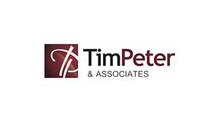
Tim Peter & Associates
This episode of Thinks Out Loud looks at the lessons the team and I have learned from ten years of running a podcast. We dive into how you can use those lessons to improve your business. We explore how you can put content marketing into action for your brand. And we take a look at where Thinks Out Loud might be going in the future—and how we can all together when we get there.

Bloomberg Tax
During the pandemic, more wealthy Americans “may have been caught with an unplanned estate,” said Jay Soled, a Rutgers University professor and estate-planning attorney. Another dimension is that “increases in the stock market and private equity were pretty stupendous” in recent years, he said.

Agence France-Presse
Surging consumer prices are far and away the top voter concern in upcoming US midterm elections, beating out worries about crime and abortion as households feel the squeeze from pricier food, shelter and services.
All of these weigh on consumers, with today's inflation levels unheard of for those below age 40, said Farrokh Langdana of Rutgers Business School.
"For so many people, this is like a new phenomenon," he said.
All of these weigh on consumers, with today's inflation levels unheard of for those below age 40, said Farrokh Langdana of Rutgers Business School.
"For so many people, this is like a new phenomenon," he said.

Real Estate NJ
“Why is this question so hard? Because it probably depends on the Fed, it depends on inflation, it depends on market sentiment,” said Davis, the Paul V. Profeta chair in real estate at Rutgers Business School. “But if you’re going to think about acquiring land and doing a development deal, you have to start thinking of: ‘What are cap rates going to be?’”

The New York Times
Abstract
The authors investigate potential discrimination against people with disabilities through a field experiment that sent job applications to 6,016 accounting positions for which the applicants’ disabilities are unlikely to affect productivity. One-third of the cover letters disclosed that the applicant had a spinal cord injury, one-third disclosed the presence of Asperger’s syndrome, and one-third did not mention disability. The disability applications received 26% fewer expressions of employer interest. This gap was concentrated among experienced applicants and small private companies that are not covered by the Americans with Disabilities Act (ADA). Tests suggest possible positive effects of the ADA, but not of state laws, in reducing the disability gap. Results indicate there may be substantial room for employer and policy initiatives to improve employment opportunities for people with disabilities.
The authors investigate potential discrimination against people with disabilities through a field experiment that sent job applications to 6,016 accounting positions for which the applicants’ disabilities are unlikely to affect productivity. One-third of the cover letters disclosed that the applicant had a spinal cord injury, one-third disclosed the presence of Asperger’s syndrome, and one-third did not mention disability. The disability applications received 26% fewer expressions of employer interest. This gap was concentrated among experienced applicants and small private companies that are not covered by the Americans with Disabilities Act (ADA). Tests suggest possible positive effects of the ADA, but not of state laws, in reducing the disability gap. Results indicate there may be substantial room for employer and policy initiatives to improve employment opportunities for people with disabilities.

WalletHub
So how can a card issuer offer zero percent interest?? Well, they really cannot.
All card issuers need to earn interest on outstanding card balances.
This means that their best customer is someone who pays the monthly minimum or slightly more and cannot afford to pay off the card balance. This allows the card issuer to earn 18% or 24% or even 29%.
The problem is how do we find those people?
And the answer is we offer ZERO percent interest on balance transfers that we match up against good FICO scores. All of those offers have a date by which the interest rate accelerates into something hurtful, like 24%. Even the zero percent consumer vendor cards, (such as Home Depot) eventually increase to a very high-interest rate. They give you 18 or 24 months to pay off the balance. A pretty good deal. Just like the zero-interest credit cards. But if you cross the line with a missed payment, or if you keep the balance for too long, you will be gladly welcomed into the world of punitive consumer borrowing.
All card issuers need to earn interest on outstanding card balances.
This means that their best customer is someone who pays the monthly minimum or slightly more and cannot afford to pay off the card balance. This allows the card issuer to earn 18% or 24% or even 29%.
The problem is how do we find those people?
And the answer is we offer ZERO percent interest on balance transfers that we match up against good FICO scores. All of those offers have a date by which the interest rate accelerates into something hurtful, like 24%. Even the zero percent consumer vendor cards, (such as Home Depot) eventually increase to a very high-interest rate. They give you 18 or 24 months to pay off the balance. A pretty good deal. Just like the zero-interest credit cards. But if you cross the line with a missed payment, or if you keep the balance for too long, you will be gladly welcomed into the world of punitive consumer borrowing.

NJBIZ
Rutgers-Newark provost Jeffrey Robinson praised the restaurant’s concept and execution.
“It’s a fantastic example of social entrepreneurship in action, when you build a restaurant that is meeting a social need, you demonstrate the power of a double bottom line.’’
“It’s a fantastic example of social entrepreneurship in action, when you build a restaurant that is meeting a social need, you demonstrate the power of a double bottom line.’’

The National Desk
“(Managing expectations) is everything because the thing about inflation is, once that baby gets baked in to our psyche, to our thinking, it's very hard to unbake,” said Farrokh Langdana, professor of finance and economics at Rutgers Business School.

Yale News
“Yale long ago abandoned the traditional 60 percent stock [and] 40 percent bond portfolio, which is having its worst year since the 1930s,” Rutgers Business School professor John Longo wrote in an email to the News. “Yale’s sizable allocation to alternative investments was likely the reason for its positive fiscal year performance.”
Yahoo! News
There is nothing illegal about receiving non-monetary compensation from an employer, but those benefits must be reported as income, with the exception of small perks like free coffee at the office, said Jay Soled, a lawyer and accounting professor at Rutgers Business School in Newark, New Jersey.

NJ Spotlight News
Princeton University is the latest major institution to announce it’s cutting financial ties to some fossil fuel companies — divesting almost $2 billion of its endowment tied to fossil fuel companies and disassociating from 90 corporations it says are the largest contributors to carbon emissions. It’s a major decision for the Ivy League university, which has one of the largest college endowments in the world.
Last year, Rutgers University announced that it would divest from all of its fossil fuel holdings. Professor Michael Barnett, Management & Global Business, comments at 1:50.
Last year, Rutgers University announced that it would divest from all of its fossil fuel holdings. Professor Michael Barnett, Management & Global Business, comments at 1:50.

Yale News
Other experts, including Rutgers Business School professor John Longo and School of Management professors William English, wrote to the News that Yale’s performance was good considering the market circumstances.

NJ Business Beat
NJ Business Beat with Rhonda Schaffler (video recording with available closed captions)
Latinos in Business
This Hispanic Heritage Month NJ Business Beat with Rhonda Schaffler explores the economic impact of the state's Latino Business community.
Associate Professor Arturo E. Osorio comments on why 51% of Latino-owned businesses and 77% of white-owned businesses received credit, and why four times as many Latinos start businesses than the rest of the population. (12:36)
Lyneir Richardson, assistant professor and executive director of The Center for Urban Entrepreneurship and Economic Development, discusses how the Black and Latino Tech Initiative program assists diverse tech entrepreneurs to get into accelerator programs where they have opportunities to attract additional capital for their businesses. (16:53)
Under Richardson’s leadership, CUEED started The Black and Latino Investment Fund of New Jersey to help fill the void of critical early-stage funding available to advance the ventures of Black and Latino founders. The investment fund plays a critical role in strengthening the efforts of the Black and Latino Tech Initiative.
Latinos in Business
This Hispanic Heritage Month NJ Business Beat with Rhonda Schaffler explores the economic impact of the state's Latino Business community.
Associate Professor Arturo E. Osorio comments on why 51% of Latino-owned businesses and 77% of white-owned businesses received credit, and why four times as many Latinos start businesses than the rest of the population. (12:36)
Lyneir Richardson, assistant professor and executive director of The Center for Urban Entrepreneurship and Economic Development, discusses how the Black and Latino Tech Initiative program assists diverse tech entrepreneurs to get into accelerator programs where they have opportunities to attract additional capital for their businesses. (16:53)
Under Richardson’s leadership, CUEED started The Black and Latino Investment Fund of New Jersey to help fill the void of critical early-stage funding available to advance the ventures of Black and Latino founders. The investment fund plays a critical role in strengthening the efforts of the Black and Latino Tech Initiative.

Yale News
“It has been a challenging fiscal and calendar year for most asset classes,” Rutgers Business School professor John Longo told the News. “In this context, the performance of Yale’s endowment is quite impressive.”
Over the ten-year period ending in June 2022, Yale’s average per annum endowment return was 12.0 percent, exceeding the mean return for college and university endowments by an estimated 3.4 percent over the same period.
According to Longo, though, the appropriate comparison for Yale is not colleges and universities in aggregate. Instead, Longo said, Yale’s endowment is better compared to other large university endowments with illiquid assets and top external managers.
Over the ten-year period ending in June 2022, Yale’s average per annum endowment return was 12.0 percent, exceeding the mean return for college and university endowments by an estimated 3.4 percent over the same period.
According to Longo, though, the appropriate comparison for Yale is not colleges and universities in aggregate. Instead, Longo said, Yale’s endowment is better compared to other large university endowments with illiquid assets and top external managers.

TND
As the U.S. continues its breakneck pace of rate hikes, more people are incentivized to return their money, which harms foreign economies as the dollar grows in value and makes it more expensive to repay debts or purchase imports.
That is devastating for the foreign countries because when capital leaves their countries, investors dump foreign currency and they switch back to dollars, so that makes the dollar even stronger, and that collapses the pound, collapses the yen,” said Farrokh Langdana, professor of finance and economics at Rutgers Business School.
That is devastating for the foreign countries because when capital leaves their countries, investors dump foreign currency and they switch back to dollars, so that makes the dollar even stronger, and that collapses the pound, collapses the yen,” said Farrokh Langdana, professor of finance and economics at Rutgers Business School.

The Wall Street Journal
John Kerry, Al Gore and the New York Times wrap themselves in a toga of morality for their position on climate change. They ought to visit India or Africa or South America to see the naked truth—what the lack of affordable energy does to the lives of the poor.
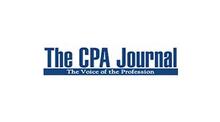
The CPA Journal
To date, “smart contracts” have had only limited use. Nevertheless, they have the power to be transformative, particularly when combined with artificial intelligence (AI). The authors examine the possible combination of these two technologies and the potential opportunities it offers to resolve asset valuations, a perennially thorny issue between taxpayers and the IRS.

The New York Times
“The problem with redlining is it denies access to opportunity,” said Lyneir Richardson, executive director of the Center for Urban Entrepreneurship and Economic Development at Rutgers Business School in Newark and a senior fellow at the Brookings Institution.
“You can’t get a mortgage. The appraisals will be off. The insurance is higher.”
“You can’t get a mortgage. The appraisals will be off. The insurance is higher.”

The Harvard Crimson
“It has been a challenging fiscal and calendar year for most asset classes,” Rutgers Business School professor John M. Longo wrote in an email. “I would be surprised to see Harvard or any large endowment generate meaningful positive returns in the current reporting cycle.”

WalletHub
Why do car insurance rates (and even providers) vary so much from state to state?
Auto Insurance is regulated on a state (not federal) level, usually by state commissions. The sometimes-large variations occur because the experiences seen by the insurance companies also vary, and some areas (often with higher levels of congestion) experience more incidents where car insurance comes into play, thus forcing those companies to charge more to cover these higher expenses.
Auto Insurance is regulated on a state (not federal) level, usually by state commissions. The sometimes-large variations occur because the experiences seen by the insurance companies also vary, and some areas (often with higher levels of congestion) experience more incidents where car insurance comes into play, thus forcing those companies to charge more to cover these higher expenses.

CBS New York
Rudolf Leuschner, an associate professor of supply chain management at Rutgers Business School, likens that plant shutdown to draining 40% of the water from a river.
"It came back online and they're producing again, but again, you have to start filling up that river with water. So it's not going to be like, 'OK, we start producing, everybody's happy and everybody can find everything.' It's going to take just as long as it took to wind down, if not longer," he said.
The professor predicts a slow, painful recovery from this shortage, saying it could take several more months to return to normalcy on the formula aisle.
"It came back online and they're producing again, but again, you have to start filling up that river with water. So it's not going to be like, 'OK, we start producing, everybody's happy and everybody can find everything.' It's going to take just as long as it took to wind down, if not longer," he said.
The professor predicts a slow, painful recovery from this shortage, saying it could take several more months to return to normalcy on the formula aisle.

NJBIZ
“For many years, certain companies have basically been able to avoid paying U.S. income taxes — and now, in the worst case, they’ll have to pay in at a 15% rate,” said Jay Soled, a Rutgers Business School distinguished professor and director of the Master of Accountancy in Taxation.
“Many of these targeted companies park their profits overseas in low-tax jurisdictions to avoid U.S. taxes, so I do not think the Corporate Alternative Minimum Tax will decimate manufacturing.”
“Many of these targeted companies park their profits overseas in low-tax jurisdictions to avoid U.S. taxes, so I do not think the Corporate Alternative Minimum Tax will decimate manufacturing.”

The Real Deal
With scarcity comes inflated prices. Morris Davis, a professor of finance at Rutgers Business School, pegs national residential land to cumulatively be worth more than $20 trillion. Davis estimated land accounts for 47 percent of home values, up nine percentage points from a decade ago.

The Wall Street Journal
Even in cities such as New York and San Francisco, where populations shrank during the pandemic, land is far more expensive today than it was decades ago. U.S. residential land alone is now estimated to be worth more than $20 trillion, according to Morris Davis, a professor of finance at Rutgers Business School who studies land values.
This historic land boom has provided a windfall for homeowners. Land now accounts for 47% of U.S. home values, estimates Mr. Davis. That is up from 38% in 2012 and less than 20% in the early 1960s. The rising value of land is responsible for almost all of the surge in home values in recent decades, he said.
This historic land boom has provided a windfall for homeowners. Land now accounts for 47% of U.S. home values, estimates Mr. Davis. That is up from 38% in 2012 and less than 20% in the early 1960s. The rising value of land is responsible for almost all of the surge in home values in recent decades, he said.

Rutgers Today
The US Census reported that 18.7% of the U.S. population was Hispanic as of April 1, 2020. In New Jersey, recent estimates suggest that about 20.4% (nearly 1.8 million) are Hispanic, which ranks the state seventh among the top ten states with the largest Hispanic/Latino population in the nation.
As reported by the New Jersey Statewide Hispanic Chamber of Commerce (NJ-SHCC), the Garden State is home to over 120,000 Hispanic-owned businesses, which in turn create thousands of jobs and tens of billions of dollars in tax revenues – an essential component to funding municipal services and shoring up social programs like Medicare and Social Security.
As reported by the New Jersey Statewide Hispanic Chamber of Commerce (NJ-SHCC), the Garden State is home to over 120,000 Hispanic-owned businesses, which in turn create thousands of jobs and tens of billions of dollars in tax revenues – an essential component to funding municipal services and shoring up social programs like Medicare and Social Security.

Insider NJ
“The Council on the Green Economy is an opportunity for New Jersey to imagine local supply chain resiliency and its influence on increasing economic development, innovation and workforce opportunities while significantly reducing our collective environmental impact,” said Kevin Lyons, Ph.D., Rutgers Business School.

Medium
Blockchain researcher and fintech professor at Rutgers Business School Dr. Merav Ozair believes that the next crucial step for DeFi is further development. “The next step is learning how to build solid code and taking things to the next level,” she explains.

NJBIZ
Jeffrey Robinson is a busy man and he’s just getting started in his newest position, provost and executive vice chancellor for Rutgers University-Newark, an appointment made earlier this summer. He’s also a Rutgers Business School professor, an author and co-founder of the Center for Urban Entrepreneurship and Economic Development. At the beginning of the year, he started his tenure as the Prudential Chair in Business at Rutgers-Newark, a position that employs a multidisciplinary approach to business education focused on science and technology, ethics and social justice. That lens aligns with a collaboration Rutgers Newark entered in August, which Robinson was on hand to celebrate, teaming up with Fiserv for the Fiserv-RU-N Program for Inclusive Innovation. In addition to offering annual scholarships, the effort will see the creation of a physical research and incubation center to be utilized by both the university community and local businesses. Robinson’s know-how is in demand outside of the academic realm as well, and he offers his expertise as a consultant, working with Fortune 1000 corporations, foundations and social sector organizations.

Medium
ERGs, short for Employee Resource Groups, have evolved to guide overall business goals as well as support talent management. As employers are working through the aftermath of the overturn of Roe vs Wade, companies should engage their ERGS to support employees’ wellbeing, physically, socially and emotionally, and leverage their ERGs to better understand their employees’ needs since, depending on location, they may have a critical healthcare void.

NJ Spotlight News
Associate Professor Rudi Leuschner speaks with Brianna Venozzi about the averted train strike and the impact a strike could have on consumers.
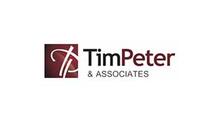
Tim Peter & Associates
Can you believe that you’ve been listening to Thinks Out Loud for ten years? I’m amazed that the podcast has been around for that long and even more thrilled that you’ve joined us for so much of that time.
But what have we learned from 10 years of the podcast? What lessons can we take and apply to your business and your content marketing? After all, Thinks Out Loud isn’t just a podcast; it’s content marketing in action.
This episode of Thinks Out Loud looks at the lessons learned from ten years of podcasting. We dive into how you can use those lessons to improve your business. We explore how you can put content marketing into action for your brand. And we look at where Thinks Out Loud might be going in the future—and how we can succeed together when we get there.
But what have we learned from 10 years of the podcast? What lessons can we take and apply to your business and your content marketing? After all, Thinks Out Loud isn’t just a podcast; it’s content marketing in action.
This episode of Thinks Out Loud looks at the lessons learned from ten years of podcasting. We dive into how you can use those lessons to improve your business. We explore how you can put content marketing into action for your brand. And we look at where Thinks Out Loud might be going in the future—and how we can succeed together when we get there.

CARYL Communications & Marketing
Open to anyone interested in hearing insights and strategies for thriving in today’s shifting climate, “CEO Perspective FOMO vs. FOHO: Is It Time to Buy, Sell or Hold?” will feature keynote speaker Professor Morris A. Davis, Ph.D., the Paul V. Profeta chair in real estate at Rutgers Business School. He will kick off the discussion with a historical perspective on how the U.S. economy got to where it is today, starting with the onset of the pandemic and the economy’s response to the injection of stimulus funds.
“Most people talk about business cycles in terms of fluctuation of demand,” Professor Davis said. “What we experienced was a COVID-19-fueled supply shock, which made it harder to produce everything. Then we had a government stimulus package, which translated to demand shock. With both big supply and demand shocks, prices increased rapidly, and now the Federal Reserve must take action to cool the inflation rate.”
“Most people talk about business cycles in terms of fluctuation of demand,” Professor Davis said. “What we experienced was a COVID-19-fueled supply shock, which made it harder to produce everything. Then we had a government stimulus package, which translated to demand shock. With both big supply and demand shocks, prices increased rapidly, and now the Federal Reserve must take action to cool the inflation rate.”

The Motley Fool
"Over time, financial markets tend to increase," says Dr. John Longo, Professor of Professional Practice in the Finance & Economics Department at Rutgers Business School. "That is, a rising tide lifts all investment boats or portfolios. Hence, active investors think they are probably performing well.
"However, investors rarely compare their performance in a rigorous manner to appropriate benchmarks, such as the S&P 500. If they did, they would probably find out that it is hard to beat the market and that investing in index funds makes sense for most people. Therefore, they are probably too optimistic or overconfident on their investment prowess."
"However, investors rarely compare their performance in a rigorous manner to appropriate benchmarks, such as the S&P 500. If they did, they would probably find out that it is hard to beat the market and that investing in index funds makes sense for most people. Therefore, they are probably too optimistic or overconfident on their investment prowess."
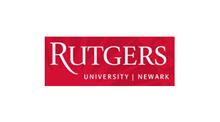
Rutgers News
The keynote address was by Rutgers-Newark Provost Jeffrey Robinson, a business school professor, who empathized with freshmen at the start of the semester, when making friends and adjusting to classes can feel intimidating. But he reassured them. “You are exactly where you’re supposed to be.’’
Robinson recalled his own journey to Rutgers in the late 1980s, when he arrived wearing “a high top fade, acid washed jeans and Adidas.’’
That year, he met classmate Randal Pinkett, with whom he started a company and who became a lifelong friend. Pinkett, a well-known entrepreneur, also became his co-author, most recently collaborating with Robinson on his book Black Faces in High Places: 10 Strategic Actions for Black Professionals to Reach the Top and Stay There.
Robinson told students that they, too, would find friends and collaborators that could last a lifetime, just like he did.
Robinson recalled his own journey to Rutgers in the late 1980s, when he arrived wearing “a high top fade, acid washed jeans and Adidas.’’
That year, he met classmate Randal Pinkett, with whom he started a company and who became a lifelong friend. Pinkett, a well-known entrepreneur, also became his co-author, most recently collaborating with Robinson on his book Black Faces in High Places: 10 Strategic Actions for Black Professionals to Reach the Top and Stay There.
Robinson told students that they, too, would find friends and collaborators that could last a lifetime, just like he did.

The Harvard Crimson
John M. Longo, a professor at Rutgers Business School and the Chief Investment Officer of Beacon Trust, wrote that it is “probably not a coincidence” that HMC’s increased investments in semiconductor companies occurred as the federal bill made its way to Biden’s desk.
“It's clear that HMC’s managers are optimistic about the prospects for semiconductor manufacturers,” Longo wrote.
“It's clear that HMC’s managers are optimistic about the prospects for semiconductor manufacturers,” Longo wrote.

ROI-NJ
CUEED Executive Director Lyneir Richardson said the center’s goal is to facilitate access to $1 million of capital by helping Black business owners build relationships with banks and community development institutions by the end of 2022. To date, Black small business owners in the CUEED program have received more than $515,000 in new financing, Richardson said.
Lei Lei, dean of Rutgers Business School, commended CUEED’s work to help small business owners, such as DIGroup Architecture, recover from the pandemic.
“Our communities will continue to grow stronger as a result of CUEED’s impactful programs and M&T Bank’s commitment to support and empower small businesses,” she said.
Lei Lei, dean of Rutgers Business School, commended CUEED’s work to help small business owners, such as DIGroup Architecture, recover from the pandemic.
“Our communities will continue to grow stronger as a result of CUEED’s impactful programs and M&T Bank’s commitment to support and empower small businesses,” she said.

The Journal of Blacks in Higher Education
Jeffrey Robinson is the new provost and executive vice chancellor at the Newark campus of Rutgers University in New Jersey. He holds the Prudential Chair in Business and is a professor of management and global business at Rutgers Business School. He joined the faculty at Rutgers-Newark in 2008, where he has specialized in management and entrepreneurship.
“I am excited to contribute to the mission of Rutgers University-Newark as an anchor institution in the city and region,” Professor Robinson said. “Specifically, I look forward to focusing on innovation and economic development along with faculty recruitment and retentions. I am particularly drawn to RU-Newark’s strengths in the arts, STEM, and entrepreneurship.”
“I am excited to contribute to the mission of Rutgers University-Newark as an anchor institution in the city and region,” Professor Robinson said. “Specifically, I look forward to focusing on innovation and economic development along with faculty recruitment and retentions. I am particularly drawn to RU-Newark’s strengths in the arts, STEM, and entrepreneurship.”

MV Telegraph
Jeffrey Robinson, provost and executive vice-chancellor at Rutgers Business School and co-founder of the Center for Urban Entrepreneurship and Economic Development, said at the Small Business Playbook Virtual Summit that a big mistake business owners make is pricing new businesses don’t find out products until it’s too late. In times of high inflation, entrepreneurs must base the pricing of new items on a detailed analysis of the cost of production. A traditional way companies set prices – decide on the product and then, once it’s available, see what competitors are charging – isn’t the way to operate in this economy. Inflation requires small business owners to set the price by first understanding their costs.
“All of these prices along the supply chain have gone up,” Robinson said. “Shipping costs…anything that involves a transportation component, that cost has gone up. So if you evaluate and evaluate your product or service that you offer along with that cost before you set the price, you can set the price at the right level,” he said.
And then comes the hard part: explaining it to the customer. Robinson says the direct relationship small businesses have with their customers should also be viewed as an advantage.
“We have relationships. talk,” he said. “Explore. You have to explain to them that the cost of these components has increased. ‘In order for me to do that, I need to change some prices,'” he said.
“All of these prices along the supply chain have gone up,” Robinson said. “Shipping costs…anything that involves a transportation component, that cost has gone up. So if you evaluate and evaluate your product or service that you offer along with that cost before you set the price, you can set the price at the right level,” he said.
And then comes the hard part: explaining it to the customer. Robinson says the direct relationship small businesses have with their customers should also be viewed as an advantage.
“We have relationships. talk,” he said. “Explore. You have to explain to them that the cost of these components has increased. ‘In order for me to do that, I need to change some prices,'” he said.

LinkedIn
Educating Future Finance Professionals
Welcome to Talk With Kiet about people worth knowing, ideas worth sharing, and capital worth allocating. In this episode, Kiet Tran, FRM and Ronnee Ades, assistant professor of professional practice, Department of Finance & Economics, Rutgers Business School, talk about educating future finance professionals.
Welcome to Talk With Kiet about people worth knowing, ideas worth sharing, and capital worth allocating. In this episode, Kiet Tran, FRM and Ronnee Ades, assistant professor of professional practice, Department of Finance & Economics, Rutgers Business School, talk about educating future finance professionals.

New Jersey Business Magazine
Lei Lei, dean of Rutgers Business School, commended CUEED’s work to help small business owners, such as DIG Architecture, recover from the pandemic. “Our communities will continue to grow stronger as a result of CUEED’s impactful programs and M&T Bank’s commitment to support and empower small businesses,” she said
“The impact of the BEST Fund builds on research done by a beloved Rutgers Distinguished Professor, Dr. Jerome Williams, who passed away in 2021,” said Lyneir Richardson, executive director of CUEED.
“The impact of the BEST Fund builds on research done by a beloved Rutgers Distinguished Professor, Dr. Jerome Williams, who passed away in 2021,” said Lyneir Richardson, executive director of CUEED.

MSN
Costco probably makes little to no money on its hot dog and soda deal, but the offer gets customers in the door and likely fuels incremental sales, Longo said.
"How many people simply buy the hot dog combo and leave?" he questioned. "Perhaps some, but not most, shoppers."
Costco makes nearly all of its profits from membership fees, allowing it to maintain rock-bottom prices for some products like the hot dog combo, Longo said.
The strategy generates free publicity, fosters goodwill towards the brand, and drives member sign ups, he continued. It also increases customer loyalty, especially when almost every good and service outside Costco's doors is becoming more expensive, he added.
"They are telling their customers that they know times are tough due to high inflation, and that they are not taking advantage of them while they are down," Longo said.
"How many people simply buy the hot dog combo and leave?" he questioned. "Perhaps some, but not most, shoppers."
Costco makes nearly all of its profits from membership fees, allowing it to maintain rock-bottom prices for some products like the hot dog combo, Longo said.
The strategy generates free publicity, fosters goodwill towards the brand, and drives member sign ups, he continued. It also increases customer loyalty, especially when almost every good and service outside Costco's doors is becoming more expensive, he added.
"They are telling their customers that they know times are tough due to high inflation, and that they are not taking advantage of them while they are down," Longo said.

ROI-NJ
Women’s Equality Day?
Sure, it said that on the calendar Friday — and it can be seen in numerous social media posts by companies and organizations — but does it hold true? Does it represent, illustrate or even illuminate the challenges women truly face in the workplace?
To find out the answers to all this and more, ROI-NJ caught up with Lisa Kaplowitz, executive director of the Center for Women in Business at the Rutgers Business School. We wanted perspective on what Women’s Equality Day actually means to women in the workplace.
Kaplowitz said what a lot of women are feeling.
“It feels kind of empty,” she said. “Especially in business.”
Even more, it feels like the idea of equality in the workplace is not something that’s gaining momentum.
“It seems like we are moving backward,” Kaplowitz said. “Women are literally getting fewer and fewer rights, making it harder for them to succeed in the workplace.”
Kaplowitz said that the U.S. is one of the only industrial nations that does not have paid family leave and that companies are even cutting back on maternity and paternity leave.
There are challenges for women when they are in the workplace, too.
Kaplowitz feels that there is still an expectation that women only get promoted based on performance and men are promoted based on potential.
Sure, it said that on the calendar Friday — and it can be seen in numerous social media posts by companies and organizations — but does it hold true? Does it represent, illustrate or even illuminate the challenges women truly face in the workplace?
To find out the answers to all this and more, ROI-NJ caught up with Lisa Kaplowitz, executive director of the Center for Women in Business at the Rutgers Business School. We wanted perspective on what Women’s Equality Day actually means to women in the workplace.
Kaplowitz said what a lot of women are feeling.
“It feels kind of empty,” she said. “Especially in business.”
Even more, it feels like the idea of equality in the workplace is not something that’s gaining momentum.
“It seems like we are moving backward,” Kaplowitz said. “Women are literally getting fewer and fewer rights, making it harder for them to succeed in the workplace.”
Kaplowitz said that the U.S. is one of the only industrial nations that does not have paid family leave and that companies are even cutting back on maternity and paternity leave.
There are challenges for women when they are in the workplace, too.
Kaplowitz feels that there is still an expectation that women only get promoted based on performance and men are promoted based on potential.

Cointelegraph
According to the SEC definition that Congress is looking to affirm, any token in which users invest with “an expectation of profit” is likely to be a security.
For one, this definition is likely to include projects that incentivize liquidity pools.
Why do liquidity pools matter? Because users are “treating it as an investment,” blockchain expert and Rutgers Business School fintech professor Merav Ozair noted in an interview last month. “If it’s a token used to buy artifacts for the game, that’s not a security. But if you can take the token and use it for investments in securities, then that token has a different use case,” she said.
For one, this definition is likely to include projects that incentivize liquidity pools.
Why do liquidity pools matter? Because users are “treating it as an investment,” blockchain expert and Rutgers Business School fintech professor Merav Ozair noted in an interview last month. “If it’s a token used to buy artifacts for the game, that’s not a security. But if you can take the token and use it for investments in securities, then that token has a different use case,” she said.

Bloomberg Tax
There is a risk, however, that the court’s decision will create too much uncertainty about how to calculate multinational tax bills, according to Harvey Poniachek, a professor of practice in Rutgers Business School’s finance and economics department.
“An unspecified method is chaos,” he said. “Every expert is going to come up with a different methodology—so the sky is the limit.”
“An unspecified method is chaos,” he said. “Every expert is going to come up with a different methodology—so the sky is the limit.”